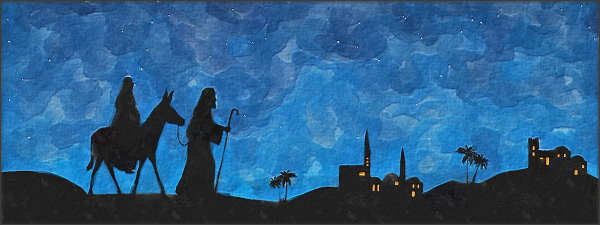
How did this holy day come to be called Easter? The name is derived from the Greek and Latin "pascha", which is taken from the Hebrew Pesach, meaning Passover. The modern English term Easter developed from the Old English word Ēastre or Ēostre, originally referring to the name of the Anglo-Saxon goddess Ēostre.[1]
When was Easter first celebrated? The earliest recorded observance of an Easter celebration comes from the 2nd century AD.[2]
Why does Easter fall on a different day every year? The date is determined as the first Sunday after the first full moon that occurs on or after the spring equinox.[3]
Why does Easter include pagan traditions? When trying to convert people from a pagan religion to Christianity, they noticed some pushback when it came to certain traditions and pagan holidays, so they tried to compromise and give them the best of both worlds.[4]
Footnotes:
- Lent
- Palm Sunday
- Good Friday
- Easter Sunday
Lent is the Christian religious observance in preparation for Easter. It echoes the 40 days Jesus spent fasting in the wilderness and enduring temptation by Satan. The first day of lent is called Ash Wednesday. During Lent, believers are encouraged to abstain from meat, particularly on Fridays, and can focus on meatless meals like fish, eggs, fruits, vegetables, and grains.
Jesus in the Wilderness:
"At once the Spirit sent him out into the wilderness, and he was in the wilderness forty days, being tempted by Satan. He was with the wild animals, and angels attended him." Mark 1:12-13
"Jesus, full of the Holy Spirit, left the Jordan and was led by the Spirit into the wilderness, where for forty days he was tempted by the devil. He ate nothing during those days, and at the end of them he was hungry." Luke 4:1-2
Palm Sunday is the Christian feast that falls on the Sunday before Easter. The feast commemorates Christ's triumphal entry into Jerusalem. Some of those present believed he would soon restore the kingdom to Israel.
"They brought the colt to Jesus and threw their cloaks over it, he sat on it. Many people spread their cloaks on the road, while others spread branches they had cut in the fields. Those who went ahead and those who followed shouted:"
"Hosanna!
Blessed is he who comes in the name of the Lord!
Blessed is the coming kingdom of our father David!
Hosanna in the highest heaven!"
Mark 11:7-10
Good Friday commemorates Jesus' Crucifixion. Good Friday is a part of Holy Week, which includes Palm Sunday, Holy Thursday, and Good Friday, leading up to Easter Sunday.
Easter Sunday, also called Pascha or Resurrection Sunday, is a Christian festival and cultural holiday commemorating the resurrection of Jesus from the dead, described in the New Testament.
- Easter was a celebration of the spring equinox for the pagans.
- The Easter bunny tradition, with its roots in ancient German folklore, emerged from the pagan goddess Eostre's association with spring and fertility, where hares and eggs were symbols of rebirth.
- In some European folklore, the Easter hare is associated with hiding colored eggs for children to find, a tradition that may have roots in the belief that hares were symbols of fertility and the arrival of spring.
- Hot cross buns are another tradition that can be traced back to pagan celebrations of the spring equinox, with the cross marking the buns representing the four seasons and the wheel of life.

When was Christmas first celebrated? Liber Pontificalis, which contains a short biography of the popes, suggests the celebration of Christmas in the 2 century CE. The text reveals that Pope Telesphorus (125-136 CE) instructed the celebration of Jesus' birth. The text does not mention the date of the festival.
How was the 25th of December determined to be Jesus' birthday? The Church in Rome, under the influence of Emperor Constantine, began celebrating Christmas on December 25th in 336 AD, although the exact date of Jesus' birth is not mentioned in the Bible.
It is claimed The 25th of December as the birthday of Jesus was used to appropriate the Roman festival of the birthday of the Invincible Sun, held on the same date.[1]
The timing of Christmas likely evolved from when pre-Christian Europeans celebrated the winter solstice in late December. In ancient Rome, when people used a different version of the calendar, called the Julian calendar, the winter solstice fell on Dec. 25.[2]
Footnotes:
- Advent Season
- Christmas Eve
- Christmas Day
- Epiphany
Advent Season begins the fourth Sunday before Christmas. Believers reflect on a central theme for each of the four weeks leading up to Christmas Eve: Hope, Peace, Joy, and Love. Many churches light a candle on a wreath each Sunday of Advent, symbolizing one of these themes.
Christmas Eve is the evening or entire day before Christmas, the festival commemorating the birth of Jesus. Christmas Eve is widely observed as a full or partial holiday in anticipation of Christmas Day. Together, both days are considered one of the most culturally significant celebrations in Christendom and Western society.
Christmas Day is a Christian festival celebrating the birth of Jesus. The English term Christmas is of fairly recent origin. The earlier term Yule may have derived from the Germanic jōl or the Anglo-Saxon geōl, which referred to the feast of the winter solstice. The corresponding terms in other languages, Navidad in Spanish, Natale in Italian, Noël in French, all translate to nativity.
Epiphany: January 6 is the feast of the Epiphany. It is a special date for many Christians as the day upon which, according to the Gospel of Matthew, three wise men from the east were led by a star to Bethlehem and offered gifts of gold, frankincense, and myrrh to the baby Jesus and his family.
Christmas Gift-Giving: The act of giving gifts mirrors the gifts brought to Jesus by the Three Wise Men. It also reflects the values of love, kindness, and generosity.

- Christmas Tree: Bringing evergreen trees into homes is a tradition that evolved into the modern Christmas tree. It has roots in ancient pagan practices, where these trees symbolized fertility and new life during the winter solstice.
- The Yule Log is a large log burned ceremonially during the winter solstice. It is a tradition that predates Christianity and is linked to pagan celebrations of the return of the sun.
- Mistletoe: The tradition of kissing under the mistletoe is thought to have come from Celtic and Norse mythology, where mistletoe was seen as a symbol of good fortune, peace, and reconciliation.
- Gift-Giving: The tradition of gift-giving is also associated with Yule, where gifts were often exchanged as a symbol of goodwill and prosperity for the coming year. The practice was adopted by the Christian faith as it paralleled the gift-giving by the Magi to the Christ child.
- Santa Claus is not a pagan myth. Also known as Saint Nicholas, a 4th-century Greek bishop, a legendary figure in Western culture who is said to bring gifts to children on Christmas Eve.